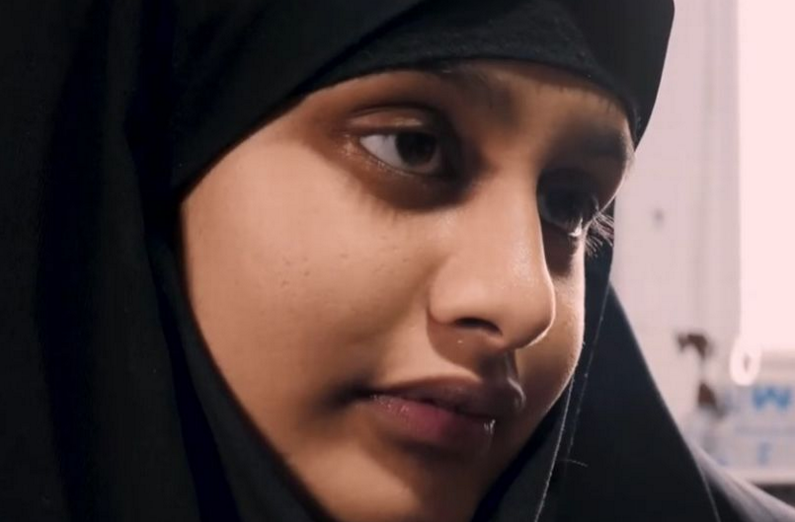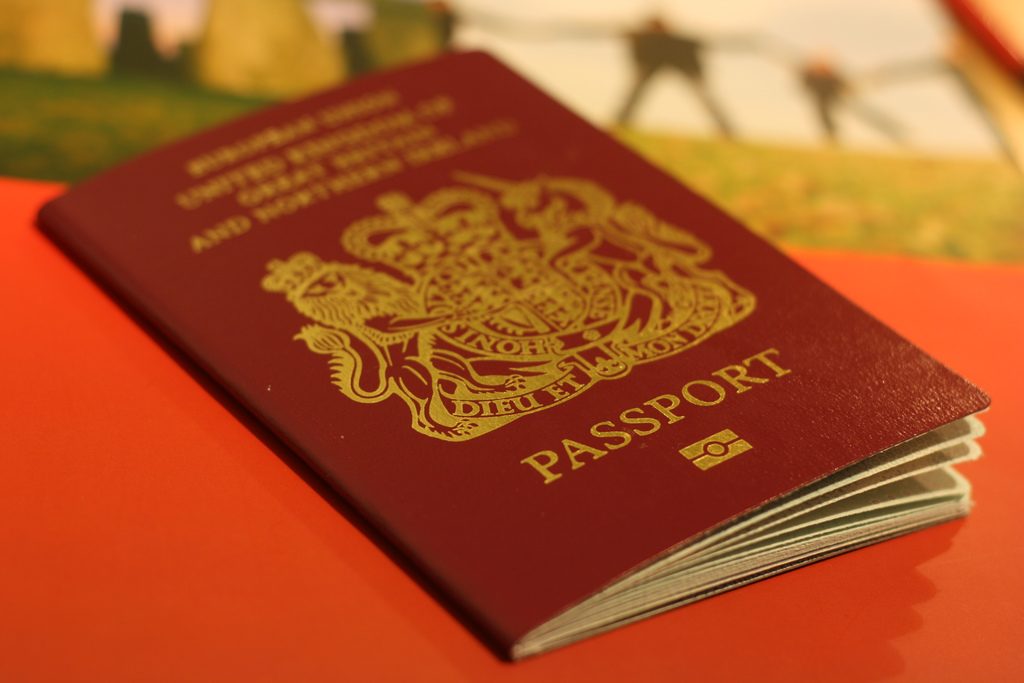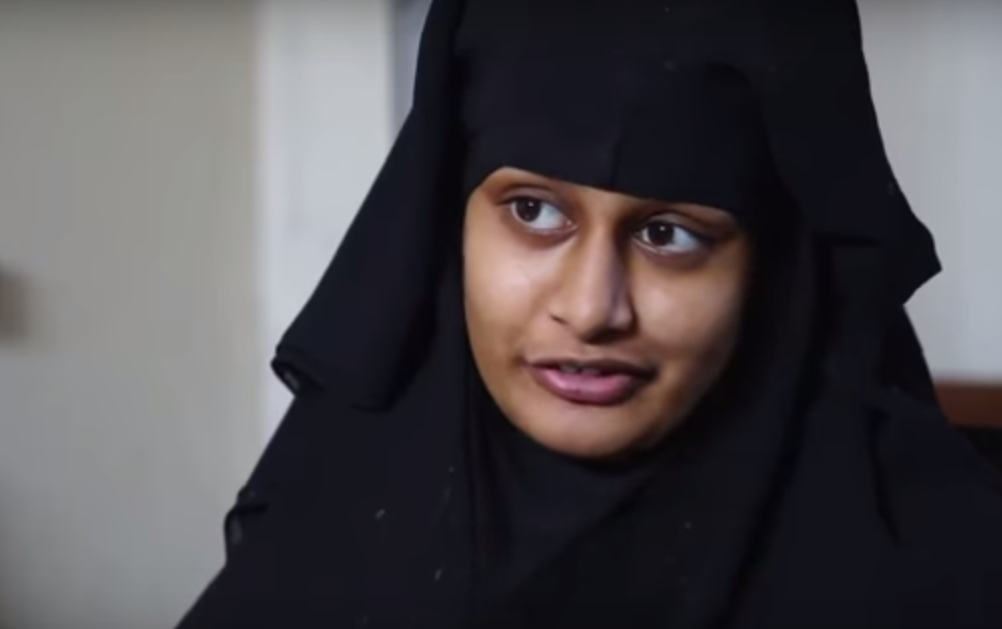Much of the discourse surrounding Shamima Begum, the 19-year-old Isis bride who wants to come back to the UK, has focused on her autonomy in deciding to join the terrorist group.
However, many arguments, including that of the Government’s decision to revoke her British nationality, appear to have negated the fact she was 15 when she fled from London and was smuggled into Syria.
Once in the militant stronghold Raqqa, she was married off to an older Dutch Isis fighter and, she claims, lived as a housewife. She gave birth to three children, two of which died of illness. The third, a baby boy who is just days old, is at risk in the Syrian detention camp where she is currently being held.
On Wednesday, Ms Begum’s lawyer Tasnime Akunjee vowed to fight against the Home Office decision to bar her return.

Image Credit: Sajid Javid, home secretary/Flickr
Mr Akunjee claims that Begum is not of dual nationality, and that while she is of Bangladeshi descent, she was born in the UK, and has “never held a Bangladeshi passport”.
“Our position is that to all practical purposes she has been made stateless,” he told the Independent, adding that the Government had also moved to make Begum’s newly born son stateless too.
Our position is that to all practical purposes she has been made stateless.
Tasnime Akunjee
The appeal, he says, could see Begum “stuck” in Syria for a further two years.
Being made stateless is prohibited under international law. The Home Office denies having made Ms Begum “stateless” because it believes she is eligible to another citizenship.
The rights of children are also strictly protected by international law. Child rights are upheld under a different convention from adults because they are more vulnerable.
Did The Government Have A Duty Of Care Over Shamima Begum?
Until the age of 18, the UK government would have had a duty of care to protect Shamima Begum from harm under the UN Convention on the Rights of the Child.
This could include efforts to contact her and bring her home from Syria, as well as giving her social support and rehabilitation when she arrived back in Britain.
Tracy Kirk, a lecturer in law at Glasgow Caledonian University, specialises in child and adolescent rights.
“The Convention is specifically there to fill the gaps that human rights don’t cover because they are more vulnerable,” she tells RightsInfo.
As soon as Shamima left the country – aged 15 – her rights seem to have disappeared.
Tracy Kirk, Lecturer at Glasow Caledonian
“It is based upon three main principles: participation, protection and provision.
“The protection element here is usually well catered for in the UK because of the existence of welfare. But as soon as Shamima left the country – aged 15 – her rights seem to have been disappeared.”
Sailesh Mehta is a leading human rights barrister from the Red Lion Chambers who has defended and prosecuted serious crime and terrorism cases for the last 30 years.
“The time that she left at the age of 15, she was a child entitled to protection of state,” he tells RightsInfo.
“It hardly lies in the mouth of the Home Secretary to criticise a situation in which a child who clearly has been subject to pressures and brainwashing, and to blame her for the very thing she was a victim of.”

Image credit: Shamima Begam/ Screenshot Sky News
He went on to suggest there is concern among lawyers and “those who believe in the rule of law” over what he called “legislation by opinion poll”.
We’ve washed our hands of her. If this has been dealt with sooner, we wouldn’t be in this problem.
Sailesh Mehta, Red Lion Chambers
“It feels as though the Home Secretary is bending to clamour to the media and public opinion. The fact is he could have sought advice from the law society, and he could have sought advice from other ministers.”
“We had a duty of care to ensure her protection was upheld until the age of 18 and we’ve failed her,” Kirk continues.
“We’ve washed her hands of her. If this had been dealt with sooner, we wouldn’t be in this problem.”
The Home Office has been contacted for comment.
What About Her Baby Boy? He’s A Child Too
Home secretary Sajid Javid said on Wednesday that while the Home Office has revoked the British citizenship of Shamima Begum, her child is still eligible.
Speaking in the House of Commons on Wednesday, Mr Javid said he would not comment on individual cases, but told MPs: “Children should not suffer, so if a parent does lose their British citizenship, it does not affect the rights of their child.”
Under the British Nationality Act 1981, any child born to a British citizen abroad has British nationality by descent.
Shamima Begum’s child is therefore legally British, and among the most vulnerable of citizens. He also has the right to special protection from the UK Government, which has a duty of care over him.
Have There Been Any Similar Cases?
A report from foreign and defence policy thinktank the Henry Jackson Society suggests that a female Isis supporter who travelled back to the UK in a case similar to that of Begum’s remains a British national and was not prosecuted.
Her daughter was, however, taken into care aged 10 months because it was felt the mother’s radicalisation put the child at significant risk.
Isis fighters have also been returning to the UK for some years.

Image credit: Kurdish fighters throw away Isis flag/Flickr
A report in 2017 published by The Soufan Centre estimated that at least 425 British Isis members had returned to the UK at that point. This figure was confirmed by the Home Office.
Many of those who returned were not prosecuted and ended up in counter terror programs.
Alexanda Kotey and El Shafee Elsheikh, from west London, were captured in Syria in January 2018.
They are accused of being the last two members of an IS foursome dubbed “The Beatles” because of their UK accents. Both had their British citizenships revoked.
What Is The Legal And Human Rights Argument Against Revoking Citizenship?
Nationality is a human right, and is recognised as such under international law.
Leaving someone stateless is strictly prohibited under international law.
“Arbitrary deprivation of nationality”, which means deliberately moving to make a citizen stateless, is prohibited under these instruments.

Image Credit: Chris Fleming / Flickr
Article 15 of the Universal Declaration of Human Rights is particularly explicit on this point.
The British Nationality Act 1981 doesn’t allow UK citizens to be barred from re-entry if they will be left stateless, although there are some exceptions based on naturalised citizens.
The Home Office deny that it has left Ms Begum stateless and is claiming that the home secretary can revoke her citizenship because she is eligible for citizenship in other states.
This is something Ms Begum’s lawyer denies, claiming that as an English-born national that has not been naturalised, Section 40.4a of the British Nationality Act, which would allow the government to refuse her entry in the public interest, does not apply.
“There has been a lot of conversation about Shamima Begum, and whether she should have any right to housing or healthcare [in the UK],” human rights barrister and immigration expert Julian Norman tells RightsInfo
“But to be deprived of nationality, to leave her and her child with no nationality at all and no state, could be in breach of Article 3 of the Human Rights Act 1998 on Inhuman and Degrading Treatment.”
Article 3 states that “no one shall be subjected to torture or to inhuman or degrading treatment or punishment”.
This is considered an “absolute right” with no exceptions.
A report published by the Independent on Wednesday suggests that the government’s use of powers to strip certain individuals of their British nationalist has soared by 600 per cent between 2016 and 2017.







